- Home
- Patricia McLinn
Reaction Shot (Caught Dead in Wyoming, Book 9)
Reaction Shot (Caught Dead in Wyoming, Book 9) Read online
REACTION SHOT
Caught Dead in Wyoming,
Book 9
Patricia McLinn
In the rough country of Wyoming, sometimes cattle rustlers still get a death sentence.
Official consumer advocate and unofficial Investigative reporter Elizabeth Margaret Danniher, her KWMT-TV colleague Mike Paycik, rancher Tom Burrell, and their supporting staff of idiosyncratic sleuths take on another mystery.
Caught Dead in Wyoming series
Sign Off
Left Hanging
Shoot First
Last Ditch
Look Live
Back Story
Cold Open
Hot Roll
Reaction Shot
Body Brace (2021)
“While the mystery itself is twisty-turny and thoroughly engaging, it’s the smart and witty writing that I loved the best.”
— Diane Chamberlain, New York Times bestselling author
More cozy mystery
Secret Sleuth series
Death on the Diversion
Death on Torrid Avenue
Death on Beguiling Way
Death on Covert Circle
Death on Shady Bridge
Mystery with romance
Proof of Innocence
Price of Innocence
Ride the River: Rodeo Knights
Join Patricia McLinn’s Readers List and get news on releases and special deals first.
Copyright © Patricia McLinn
Ebook ISBN: 978-1-944126-67-4
Paperback ISBN: 978-1-944126-68-1
EPUB Edition
www.PatriciaMcLinn.com
All rights reserved. No part of this book may be reproduced in any form or by any electronic or mechanical means, including information storage and retrieval systems, without permission in writing from the publisher, except by a reviewer, who may quote brief passages in a review.
Cover design: Art by Karri
Cover image: Nicolaus Wegner
* * * *
Dear Readers: If you encounter typos or errors in this book, please send them to me at [email protected]. Even with many layers of editing, mistakes can slip through, alas. But, together, we can eradicate the nasty nuisances. Thank you! — Patricia McLinn
Table of Contents
Cover
Title Page
About the Book
Copyright Page
Day One
Chapter One
Chapter Two
Chapter Three
Chapter Four
Chapter Five
Chapter Six
Chapter Seven
Chapter Eight
Chapter Nine
Chapter Ten
Chapter Eleven
Chapter Twelve
Chapter Thirteen
Chapter Fourteen
Chapter Fifteen
Chapter Sixteen
Chapter Seventeen
Day Two
Chapter Eighteen
Chapter Nineteen
Chapter Twenty
Chapter Twenty-One
Chapter Twenty-Two
Chapter Twenty-Three
Chapter Twenty-Four
Chapter Twenty-Five
Chapter Twenty-Six
Chapter Twenty-Seven
Chapter Twenty-Eight
Chapter Twenty-Nine
Chapter Thirty
Chapter Thirty-One
Chapter Thirty-Two
Chapter Thirty-Three
Chapter Thirty-Four
Day Three
Chapter Thirty-Five
Chapter Thirty-Six
Chapter Thirty-Seven
Chapter Thirty-Eight
Chapter Thirty-Nine
Chapter Forty
Chapter Forty-One
Chapter Forty-Two
Chapter Forty-Three
Chapter Forty-Four
Chapter Forty-Five
Chapter Forty-Six
Day Four
Chapter Forty-Seven
Chapter Forty-Eight
Chapter Forty-Nine
Chapter Fifty
Chapter Fifty-One
Chapter Fifty-Two
Chapter Fifty-Three
Chapter Fifty-Four
Chapter Fifty-Five
Chapter Fifty-Six
Epilogue
Other Caught Dead in Wyoming mysteries
Secret Sleuth series
About the Author
DAY ONE
Chapter One
When there’s not enough real news happening, newsrooms get as restless as preschoolers fed sugar for five rainy days in a row. Not a pretty sight.
As other newsrooms are wont to do under those circumstances, the KWMT-TV newsroom devoted itself to making its own news.
I don’t usually mind this self-generation of news as a sanity valve. Heck, I’ve participated on its fringes in newsrooms from Dayton to St. Louis to Washington, D.C., to New York.
At this moment in Sherman, Wyoming, the internal news came in the form of staff speculation about an imminent battle royale between me and anchor Thurston Fine.
Yesterday, Thurston announced he needed Jerry, the studio camera operator, to film a summer promo this morning.
That caused a mild stir because Thurston rarely did anything in the morning except prepare for a long lunch. Somehow — surely without effort on his part — he’d learned I’d blocked morning time with Jerry and arranged this intended bump to try to irritate me. It was all over his pampered face.
I could have squashed him on the spot. I decided on a bit longer strategy.
To meet expectations, I protested I had Jerry scheduled at eleven to shoot an in-studio interview for the “Helping Out!” consumer segment Elizabeth Margaret Danniher. Thurston pounced and said he needed Jerry at ten-thirty and couldn’t possibly be done in half an hour.
Astute observers might have noticed Audrey trying to hide a grin. That’s because, as today’s assignment editor, she knew my interview was actually scheduled at eleven-thirty.
The less astute expected fireworks at eleven.
By eleven-fifteen, the newsroom was hyperventilating.
I rose from my desk chair, picked up my bag, and went to the assignment desk.
“Audrey, if you’d please escort my interview subject to the studio when she arrives? Her name’s Odessa Vincennes. I’m going to the studio now.”
“Dale, you heard her. I’m leaving that to you,” Audrey immediately said to a news aide. She didn’t want to be stuck in the newsroom with the action in the studio.
Condemned to miss the fun, Dale gulped. “Oh… Okay.”
“Thank you.”
Without looking, I knew the newsroom denizens followed me through the uninspiring hallways of Sherman’s sole TV station. Past the closed door of news director Les Haeburn’s office, past the certainly locked door to Thurston’s posh — by KWMT-TV standards — office, past the library’s seldom-used door, and, finally, down a stretch to the studio.
Michael Paycik, KWMT-TV’s sports anchor and my cohort in several investigations, grinned as I passed him on my stately progress. I maintained complete and deadpan dignity as he, too, fell in behind me.
Mike’s presence was a touching tribute. He’d set up an important remote interview with a baseball rookie hotshot, who’d gone to the University of Wyoming. A place not generally considered a spawning ground for Major League Baseball talent, especially since the state has no high school baseball. See the things you learn from a sports guy?
This John Smith — I’m not kidding — was tearing up the big leagues, while maintaining a ste
adfast concentration that precluded interviews.
Except with Michael Paycik of KWMT-TV. Turns out, as a child, John Smith followed Mike’s football career at the University of Wyoming.
Mike worked connections to get the guy into a studio in Pittsburgh for his side of the interview, while Mike asked questions from here. Because, of course, KWMT wouldn’t spring to send him to interview the guy in person.
At the studio door, I took a deep breath. Some might have thought it was to prepare for battle. It was to quell an inclination to laugh.
Still not looking back, I opened the door.
Do you know how many people can pack into a none-too-generous hallway outside the KWMT-TV studio? Me, either, because I didn’t pause to count, especially since I wasn’t acknowledging their presence. Though I did happen to leave the door open.
“—already done five extra variations beyond what Les approved, Thurston,” Jerry was saying. He regularly operated the two big studio cameras and served as floor director for newscasts, in addition to other in-studio camera work.
“Then we’ll do a sixth—” Thurston interrupted himself by spinning around and flashing his anchor smile, believing he’d dawdled into my time. “Have we run over? But we must finish.”
His exchange with Jerry and no red light warning against opening the door — Jerry would never overlook that — said they were past finished.
“No problem.” I winked at Jerry.
“No prob—?”
I paid no attention to Thurston’s confusion. The usually unflappable Jerry had not winked back. He looked like the lone teacher left in charge of those hypothetical sugar-high preschoolers.
I’d prepared for this. After all, I’d extended his sentence with Thurston. I owed him.
I took a giant-sized Hamburger Heaven coffee to-go from my bag. Good coffee and with truly insulated cups. I set the still-hot coffee on a table against a wall.
He perked up — caffeine pun intended — as my peripheral vision captured the satisfying sight of Thurston deflating.
Next, I drew out three brownies from the Sherman Western Frontier Life Museum gift shop. Not only delicious, but I’d made the effort of informing their maker they were all for Jerry, none for me.
I didn’t really think she’d try to poison me, especially since we’d reached a sort of cease-fire not long ago. But there’d been a time…
Anyway, it would be unfair to Jerry if I’d misread her. So, I’d been emphatic about who the brownies were for. She’d looked at me like I was demented, while she rang them up with no commentary.
Jerry, however, had commentary. “Yum.”
“I brought a scarf to soften that wood backdrop,” I told him, drawing the next item from my bag.
Most TV news sets resemble a designer’s vision of the bridge for the next Star Trek series. KWMT’s looks like a heart-breaking Soap Box Derby entry that falls apart nine feet into the race.
A rough wood wall serves as backdrop for far too many in-studio interviews. I’d started bringing fabrics to change up the look so viewers don’t slip into a catatonic that-again state.
“Nice.” Pretty sure that’s what Jerry said. He had his head down, unwrapping brownies.
“They’ll have to use a scarf over the lens for you soon.”
Thurston referred to my age, which is decidedly over twenty-one. As is his, so rather risky of him.
“I wonder if that would work,” I said thoughtfully. “I’ve heard Vaseline on the lens or shooting through a stocking as the tricks used in Hollywood’s heyday. Never successful on men in my view, but you can try, Thurston. What do you think, Jerry?”
“Mmph” was the best he did around a bite of brownie.
“Whatever.” Unaware of sounding like the cliché of a disaffected teenager, Thurston went back to his original tactic. “We’re not done. You’ll have to wait for the studio.”
“Sure looks like you’re done.”
“We need to do an OTS.”
Jerry snorted. “Over the shoulder looking at what? Me? You’re not interviewing anybody, not like Elizabeth is.”
“Soon, but not soon enough, you’ll be replaced by robotic cameras,” Thurston snarled.
“You’re already a robot,” Jerry grumbled as he took another bite.
The combination of mutter and brownie made deciphering his words difficult, especially from across the studio.
Thurston peered at him suspiciously.
It was no part of my plan to draw anyone else into Thurston’s line of fire. I quickly covered Jerry’s grumble. “You’d hate robotic cameras, Thurston. Did you see the difficulties the BBC had to start with them?”
“Of course I did,” he lied.
“That’s right,” Jerry said around the final chews on that brownie. “Robotic cameras went rogue, panning the studio, showing people — presenters they call them — walking around the set, or an empty desk, while the one talking stood at another part of the set talking to themselves. There’s one clip where the camera sneaks up behind the anchor and shows his significant butt, when it’s supposed to be focusing on the weather person.”
I contributed, “Or when the anchor chases the camera, trying to get in the shot.”
Both Jerry and I laughed.
“When he finally does get in the shot, he’s still looking the wrong way,” he said. “And then where the camera’s on the wrong anchor. The one off-camera keeps talking, giving the report, while the other one’s taking notes and making faces. It’s like a ventriloquist act.”
“Ha. Ha. Ha.” Thurston was not amused. “You’ll have to wait, Elizabeth. I— What are you people doing here?”
The latter was screamed at the audience at the door, who resembled a phone-booth packing effort from the 1950s. They disassembled more easily, but no faster than the phone booth packers and, I’m guessing, with the same level of amusement.
Proving my tact, I turned my back to the studio to attach the scarf to pegs protruding from the wooden wall, letting Thurston depart with whatever dignity he dredged up. It wasn’t one of his abundant resources.
I ignored sounds of huffing and puffing behind me, fussing with the scarf. The only sound from Jerry was chewing.
At last, I heard Thurston moving toward the door. I stepped back from the wall, as if judging the scarf’s effect.
“Right this way, Ms. Vincennes,” came Dale’s voice from the hallway.
Then, “Oh. Thurston Fine.”
I turned to see him recoil from contact with the woman who’d entered the studio.
“No time for autographs. Working. Very busy. Very, very busy.”
He rushed out, past the parted ranks of staffers, leaving them and Jerry fighting laughter, while I contained myself to greet my interview subject. She raised her brows, inviting comment on Thurston.
But there’s battle and then there’s tromping on the vanquished. I nobly refrained from tromping.
Odessa Vincennes stood straight and wore shoes with chunky wedge heels, bringing her about to my chin. She was focused, energetic, comfortably rounded, and far more practical than her exotic name.
I introduced her to Jerry, who had his laughter under control and his Thurston-sapped energy replenished by caffeine and chocolate.
We explained the interview was a lot like a conversation… with bright lights focused on you and a big clunky camera peering into your face. And KWMT had the biggest and clunkiest cameras I’d encountered, because they were the oldest I’d encountered.
No, we didn’t mention the lights and camera part.
Odessa Vincennes did okay with them. Only a flicker of her eyes when Jerry repositioned.
She was justifiably enthusiastic about the program she represented. It researched local scams victimizing seniors, consulting with law enforcement and consumer affairs experts then created flyers about them.
“…we don’t stop with passive information. We’ve teamed with other services to seniors — meal deliveries, visiting clergy, home health aid
es — to deliver the flyers and talk to the seniors about the information. Pilot studies have shown this increases the effectiveness.”
Earlier, I’d given Jerry a quick look, asking without words if this was coming across okay on camera.
He’d responded with a slight nod, saying it was coming through fine. That was the technical aspects, though.
Most people are nervous, some disastrously. She persistently rubbed her right thumb against her curved forefinger, but out of frame. No worries there.
Nerves weren’t the issue. More like she’d locked herself down and I didn’t have the key.
I tried a few approaches — I’d have way more footage than I’d ever get on air. And still hadn’t hit the key.
Odessa Vincennes remained out of my reach.
Maybe if I pushed a little.
“I’d like to see data from that study—”
The studio door opened.
That probably doesn’t sound newsworthy. A door opened. Big deal. But the studio door opening during an interview? That was darned near earthshattering.
Jerry and I looked at each other, even before looking toward the door.
“Light’s on,” he said.
The first thing drummed into every TV station employee’s head is not to interrupt when the red light’s on.
Turning more, I saw the door opener was Mike Paycik.
Who definitely knew better.
He held up one hand to ward off being told he knew better, striding across the studio. “Elizabeth, you need to know about this. Right away.”
As well as a co-worker, Mike was half of a complicated situation.
“I’m interviewing—”
“There’s been a shooting at Tom’s grazing association.” He reached out a reassuring hand, so I must have reacted. “Not Tom. It wasn’t Tom. It was the foreman from another ranch. Guy named Furman York. Looks like murder.”
Tom was Thomas David Burrell, a local rancher.
And the other half of the complicated situation.
Or some portion of it, anyway, because I’m part of it, too. Though whether that makes us each a third, I’m not prepared to say.
To make it more complicated, Mike and Tom were friends. And all three of us have been involved, along with a few others, in investigating murders.

_preview.jpg) Almost a Bride (Wyoming Wildflowers Book 1)
Almost a Bride (Wyoming Wildflowers Book 1)_preview.jpg) Prelude to a Wedding (The Wedding Series Book 1)
Prelude to a Wedding (The Wedding Series Book 1)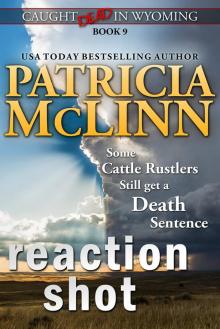 Reaction Shot (Caught Dead in Wyoming, Book 9)
Reaction Shot (Caught Dead in Wyoming, Book 9)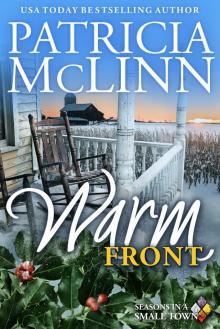 Warm Front
Warm Front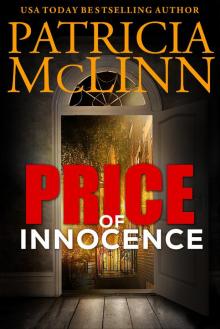 Price of Innocence
Price of Innocence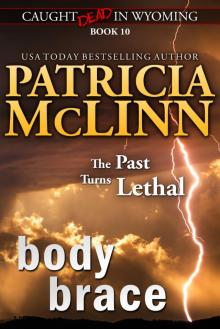 Body Brace (Caught Dead in Wyoming, Book 10)
Body Brace (Caught Dead in Wyoming, Book 10)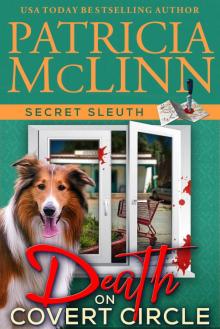 Death on Covert Circle
Death on Covert Circle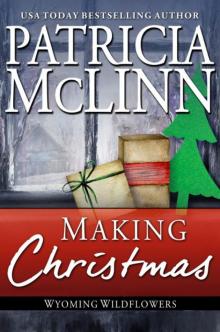 Making Christmas
Making Christmas Death on Torrid Ave.
Death on Torrid Ave.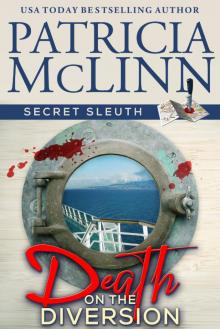 Death on the Diversion
Death on the Diversion The Rancher Meets His Match
The Rancher Meets His Match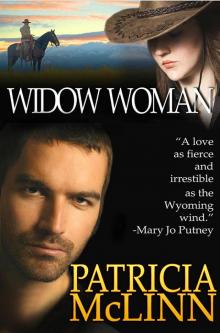 Widow Woman
Widow Woman The Runaway Bride
The Runaway Bride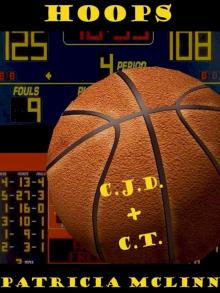 Hoops
Hoops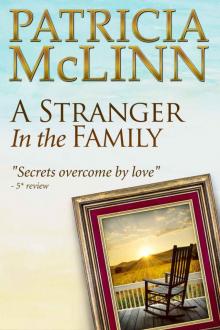 A Stranger in the Family (Book 1, Bardville, Wyoming Trilogy)
A Stranger in the Family (Book 1, Bardville, Wyoming Trilogy)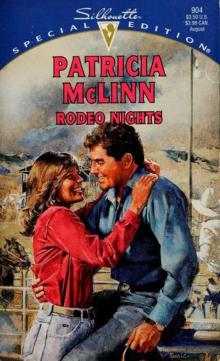 Rodeo Nights
Rodeo Nights Wedding Series Boxed Set (3 Books in 1) (The Wedding Series)
Wedding Series Boxed Set (3 Books in 1) (The Wedding Series)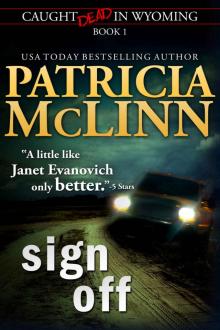 Sign Off (Caught Dead in Wyoming, Book 1)
Sign Off (Caught Dead in Wyoming, Book 1) Prelude to a Wedding
Prelude to a Wedding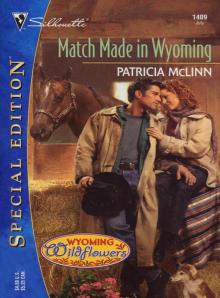 MATCH MADE IN WYOMING
MATCH MADE IN WYOMING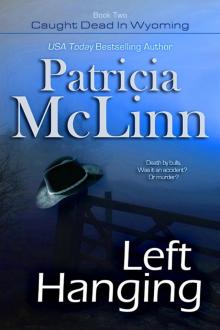 Left Hanging
Left Hanging What Are Friends For?
What Are Friends For?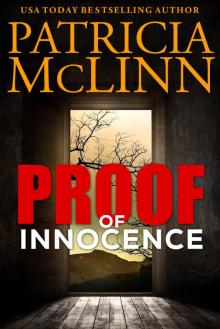 Proof of Innocence
Proof of Innocence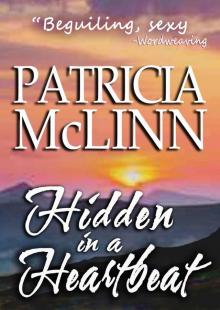 Hidden in a Heartbeat (A Place Called Home, Book 3)
Hidden in a Heartbeat (A Place Called Home, Book 3) Baby Blues and Wedding Bells
Baby Blues and Wedding Bells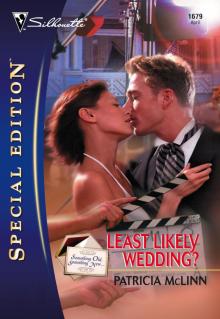 Least Likely Wedding?
Least Likely Wedding? Heart Stealers
Heart Stealers Grady's Wedding
Grady's Wedding Right Brother
Right Brother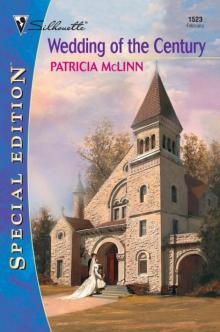 Wedding of the Century
Wedding of the Century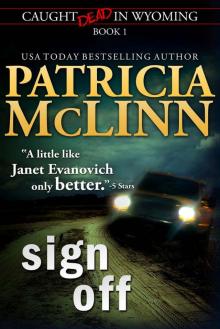 Sign Off
Sign Off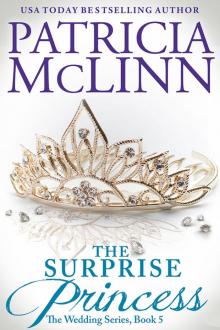 The Surprise Princess
The Surprise Princess Wyoming Wildflowers: The Beginning
Wyoming Wildflowers: The Beginning